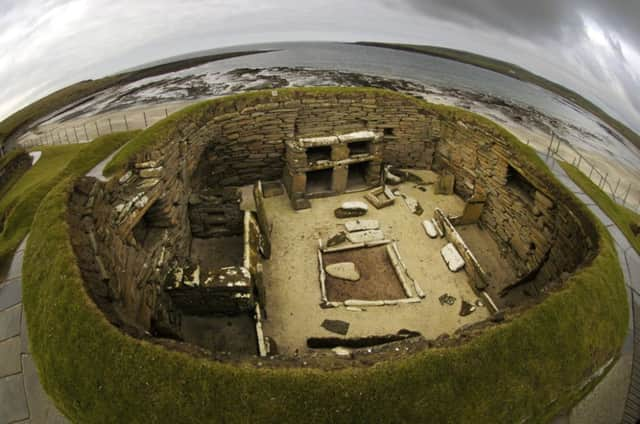Skara Brae ‘will be submerged by 3C warming’


New York’s Statue of Liberty, Sydney Opera House and Pompeii in Italy – which is currently crumbling as a result of wet weather – are also among 136 internationally important sites that would be deluged if temperatures rise just 3°C above pre-industrial levels in the next two millennia, they say.
Other significant places facing inundation are Robben Island, where former South African leader Nelson Mandela was imprisoned, Venice and its Lagoon, and the city centres of Bruges, Riga, in Latvia, and St Petersburg.
Advertisement
Hide AdAdvertisement
Hide AdThe new report, published today in the journal Environmental Research Letters, calculates the temperature increases at which the 720 world heritage sites listed by Unesco would be hit by future sea-level rises caused by melting polar ice caps.
Lead researcher Professor Ben Marzeion, from the University of Innsbruck, said: “Our results show if there is a 3°C temperature increase over the next 2,000 years, which seems likely to be reached and is generally considered not to be an extreme scenario, the impacts on global heritage would be severe.”
But he added the report did not consider the effects of extreme weather events caused by climate change, which are believed to have been behind the recent catastrophic flooding in the Somerset Levels and other places across the UK.
Climate campaigner Dr Richard Dixon, director of Friends of the Earth Scotland, said: “For obvious historical reasons, many of our most precious historical sites are on the coast. They were built hundreds or thousands of years ago, but now most of them are at risk from rising seas and strengthening storms.
“In Scotland, Skara Brae and other sites in Orkney join St Kilda on the danger list. Coastal archaeology is in danger of becoming an exercise in rescuing what we can and cataloguing what we are going to lose unless the world gets a grip on fossil fuel use and cuts climate change emissions.”
A spokeswoman for Historic Scotland, which acts as caretaker for Orkney’s neolithic heritage, said: “We recognise sea-level rise presents a threat to historic environment sites on Scotland’s coast.
“Skara Brae, which today lies on the coast, has been exposed to coastal erosion since it was first uncovered during a storm in 1850. Sea defences are in place.”
SEE ALSO